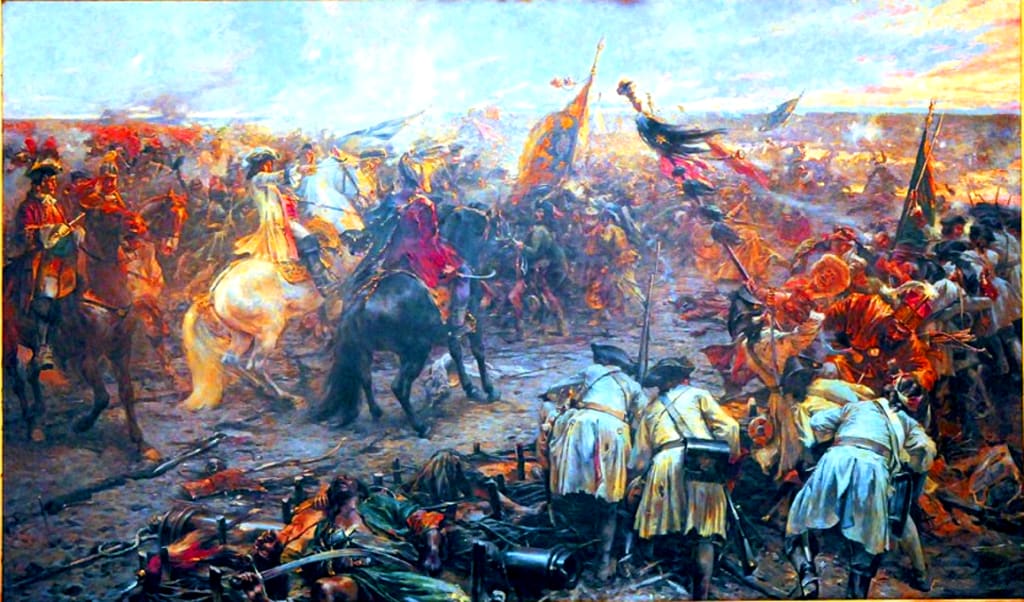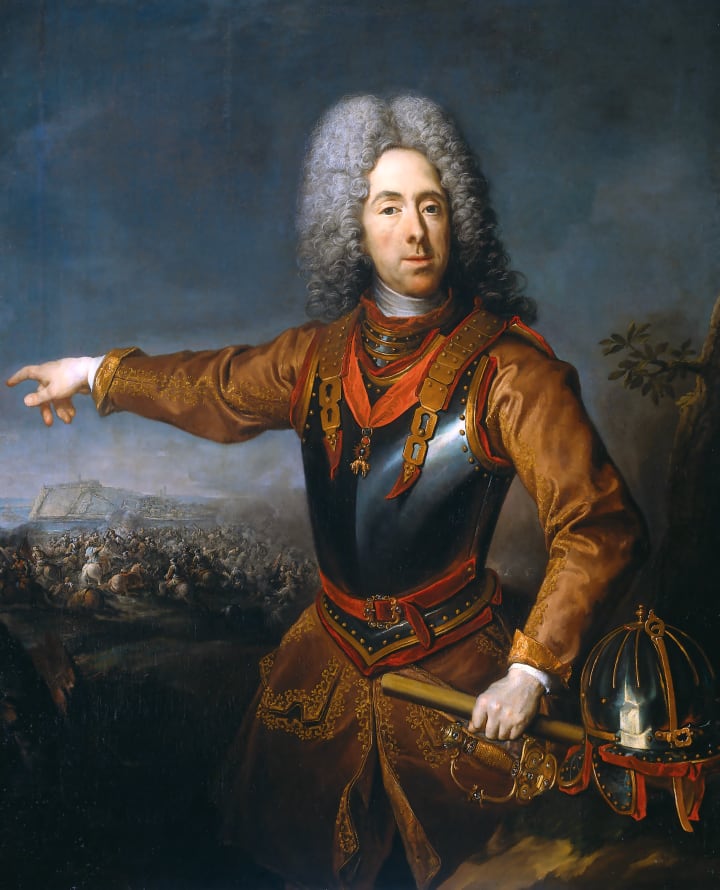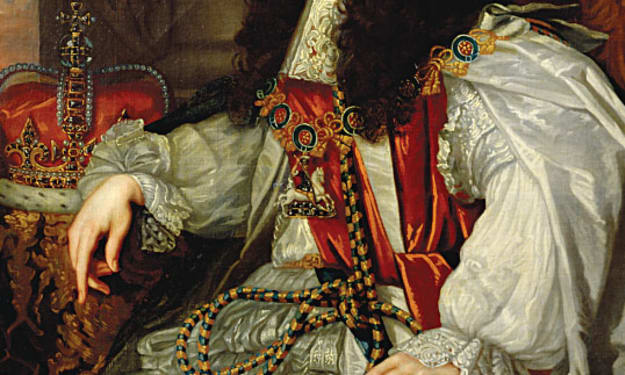The Battle of Zenta, 1697
A major victory by Prince Eugene of Savoy

Of course, the date of 11th September has a significance that will never be lost to anyone who was alive and aware on that date in 2001, but this article concerns an event that took place centuries earlier, namely in 1697. This was the Battle of Zenta, fought between the army of the Austrian Empire and the Ottoman Turks who were making inroads far into central Europe.
Ottoman expansion
The expansion of the Ottoman Empire had been a matter of grave concern to the European powers for many years, and would continue to be so for a long time to come. In 1683 the Turks had been beaten back from the walls of Vienna and had retreated into the Balkans (where there is a strong Muslim presence down to the present day), but they were now threatening a fresh assault.
Prince Eugene of Savoy
The task of keeping the Turks in check was entrusted to a young French-born general, Prince Eugene of Savoy. Born in 1663, Eugene had hoped to serve King Louis XIV in a military capacity but was rejected out of hand, due mainly to the fact that Eugene’s mother had fallen out of favour with the king, with whom she had been having an affair, and Louis would have nothing to do with any of her family.

Eugene therefore offered his services to the Habsburgs of Austria. The occasion for doing this was the death of Eugene’s brother Louis, who was killed in 1683 when fighting for the Austrians against the Turks in the action at Vienna mentioned above. Eugene offered to take Louis’s place as a commander in the Austrian army, and was accepted.
By 1697 Eugene had been involved in a number of campaigns, both against the Turks and in the Nine Years War against the French, rising to the rank of Major-General at the age of 22 and Field-Marshal at 30. It was therefore not surprising that he should be offered supreme command of the Austrian forces when the Ottoman threat reappeared.
The Battle of Zenta
Eugene was ordered to attack the Turks so as to remove the threat of any further advances on the Austrian Empire. He therefore pursued the army of Sultan Mustafa II and caught up with them at Zenta, at the confluence of the rivers Tisza and Danube in modern-day Serbia.
The Turkish army was much larger than his own, but when he arrived Eugene noted that the Turks had started to cross the Tisza, sending their heavy artillery first. This meant that the infantry were still on the near side of the river but the artillery was on the other side and unable to take part in any action. Eugene seized the moment and attacked.
The result was a rout of the Turkish forces, which were completely unprepared for battle. They panicked, and up to 10,000 men were drowned as they tried to escape across the river. Another 20,000 were killed in the fighting. Part of the Turkish army consisted of Christian conscripts known as Janissaries; they mutinied during the battle and killed their own general.
Eugene’s losses were limited to 300 men, which is a measure of just how complete the Austrian victory was. The Turks had to concede vast tracts of land to the Austrians as a result of their defeat, which in turn shifted the balance of power very much in Austria’s favour.
This victory was Eugene’s first as overall commander of the Austrian army, but it would not be his last. He is generally regarded as one of the greatest military figures of his age.
Another victory
As it happened, 11th September was also the date of another victory by Eugene of Savoy. This was in 1709 at the Battle of Malplaquet, where Eugene fought alongside the English general the Duke of Marlborough against the French during the War of the Spanish Succession. Although this later battle was a victory, in that the French were forced to retreat, the result was nothing like as clear-cut as at Zenta. The allies lost 22,000 casualties against the French 12,000, which therefore qualifies the battle as a “Pyrrhic victory”.
About the Creator
John Welford
I am a retired librarian, having spent most of my career in academic and industrial libraries.
I write on a number of subjects and also write stories as a member of the "Hinckley Scribblers".






Comments (1)
Dear Mr. Welford, thank you for the great summary of the Battle of Zenta. I would kindly add a small correction. The confluence of the two rivers Tisza and Duna (Danube) is not at Zenta (I was born and raised in this town). I have also read that Prince Eugene lost between 500-1000 soldiers. Anyway, our city is proud to be part of this significant event in history. Kind Regards, R.T.